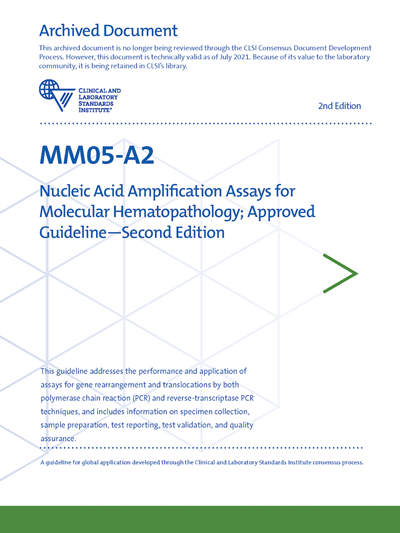CLSI MM05
Nucleic Acid Amplification Assays for Molecular Hematopathology, 2nd Edition
This guideline addresses the performance and application of assays for gene rearrangement and translocations by both polymerase chain reaction (PCR) and reverse-transcriptase PCR techniques, and includes information on specimen collection, sample preparation, test reporting, test validation, and quality assurance.
This document is available in electronic format only.
Member price:
List Price:Details
Chairholder: Daniel E. Sabath, MD, PhD
Date of Publication: March 30, 2012
Order Code PDF: CLSI MM05A2E
ISBN Number: 1-56238-791-X
Order Code Print: print not available
Edition: Second
Pages: 108
CLSI MM05 Additional Details
If interested in ordering larger quantities of this document in print, please contact us here.
The U.S. Food and Drug Administration (FDA) has evaluated and recognized this approved-level consensus standard for use in satisfying a regulatory requirement.
This archived document is no longer being reviewed through the CLSI Consensus Document Development Process. However, this document is technically valid as of July 2021. Because of its value to the laboratory community, it is being retained in CLSI’s library.

